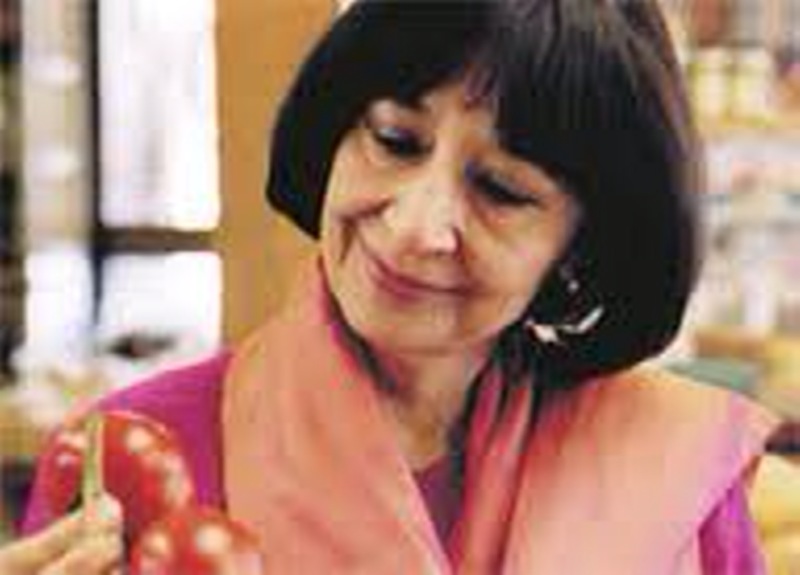How to Save Downton Abbey Hollandaise Sauce Then AND Now
 Tuesday, February 5, 2013 at 12:28PM
Tuesday, February 5, 2013 at 12:28PM  The culinary accurateness of the Downton Abbey Series should delight all professionals in the hospitality industry.
The culinary accurateness of the Downton Abbey Series should delight all professionals in the hospitality industry.
From soufflés to silver service, it is more than obvious that great research has gone into every aspect of the script where food is concerned.
But Downton's writers go even further. They show what can go amiss in the kitchen as well as what works. For example, sauces. Sauces are the wonder of cuisine. There are five major ones, entitled "the Mother Sauces", each with seemingly endless variations on their major taste themes.

One such sauce is Hollandaise, an emulsified sauce in which egg yolks not only serve as the emulsifier, but also as a thickening agent. The final viscosity or thickness of the sauce is determined by how much fat is emulsified in and to what degree the egg yolks are cooked.

The more the egg yolks are cooked, the thicker the hollandaise will be. However, the more the egg yolks are cooked, the more chance that the final result will be scrambled eggs, not a glorious hollandaise sauce. It's a delicate balance.

And that's just what happened to Ivy, the perky new kitchen maid, in the Dowwnton Abbey kitchen right before a grand meal. Even Daisy, the more experienced assistant cook, panicked when she saw the curdled sauce.
 It's Alfred, the very new and very tall footman, who comes to the rescue. Prior to serving at Downton, he had worked as a hotel waiter, where he had caught glimpses of how master chefs save a separated or "broken" sauce.
It's Alfred, the very new and very tall footman, who comes to the rescue. Prior to serving at Downton, he had worked as a hotel waiter, where he had caught glimpses of how master chefs save a separated or "broken" sauce.
He quickly strained out the curdle portion of the sauce and whisked one egg yolk and 1 tablespoon of water to the remaining sauce, still keeping it warm during the process. His fast reaction would please any chef and mark this young man as someone to promote. (Is Mrs. Patmore, Downton's cook, observing his flare, leading possibly to future plot developments?)
A hundred years ago, chefs used double copper pots to make hollandaise sauce. Ouch - that's expensive and a royal pain to keep clean and polished. Today's chef has the advantage of improved cookware, such as Rose Bake and Oven Ware.
 Developed by Rose Levy Beranbau, author of the James Beard's acclaimed The Cake Bible and known as someone with a very sharp eye for technique to a diva level, her Rose Caramel Pot with double pouring spouts is a marvel for sauces sweet or savory.
Developed by Rose Levy Beranbau, author of the James Beard's acclaimed The Cake Bible and known as someone with a very sharp eye for technique to a diva level, her Rose Caramel Pot with double pouring spouts is a marvel for sauces sweet or savory.
Additionally, for those sauces requiring the use of a lift KitchenAid Mixer, no busy chef who cares about easy and elegance should be without the Rose BeaterBlade.
Its patented "Wind" design scraps the sides and bottom of the mixing bowl with every turn. When detached, it even doubles as a spatula.
Alfred saved the day in Downton's Edwardian kitchen with his knowledge of the new and useful. If he lived today, he's surely reach for Rose's outstanding cookware and save the day once again. Tools and technique have always matter and they always will.

Your Culinary World copyright Ana Kinkaid/Peter Schlagel 2013
 Alfred,
Alfred,  Daisy,
Daisy,  Downton Abbey Dishes,
Downton Abbey Dishes,  Emulsification,
Emulsification,  Hollandaise Sauce,
Hollandaise Sauce,  Ivy,
Ivy,  Mother Sauces,
Mother Sauces,  Mrs. Patmore,
Mrs. Patmore,  Rose Caramel Pot,
Rose Caramel Pot,  Rose Levy Beranbau,
Rose Levy Beranbau,  Silver Services,
Silver Services,  The Cake Bible in
The Cake Bible in  Awards,
Awards,  Baking,
Baking,  Chefs,
Chefs,  Cookbooks,
Cookbooks,  Cooking,
Cooking,  Cuisine,
Cuisine,  Culinary History,
Culinary History,  Films,
Films,  Food,
Food,  French Cuisine,
French Cuisine,  Great Britain,
Great Britain,  Hospitality Industry,
Hospitality Industry,  Hotels,
Hotels,  Movies,
Movies,  Professionalism,
Professionalism,  Recipes
Recipes 
























































































































































































Reader Comments